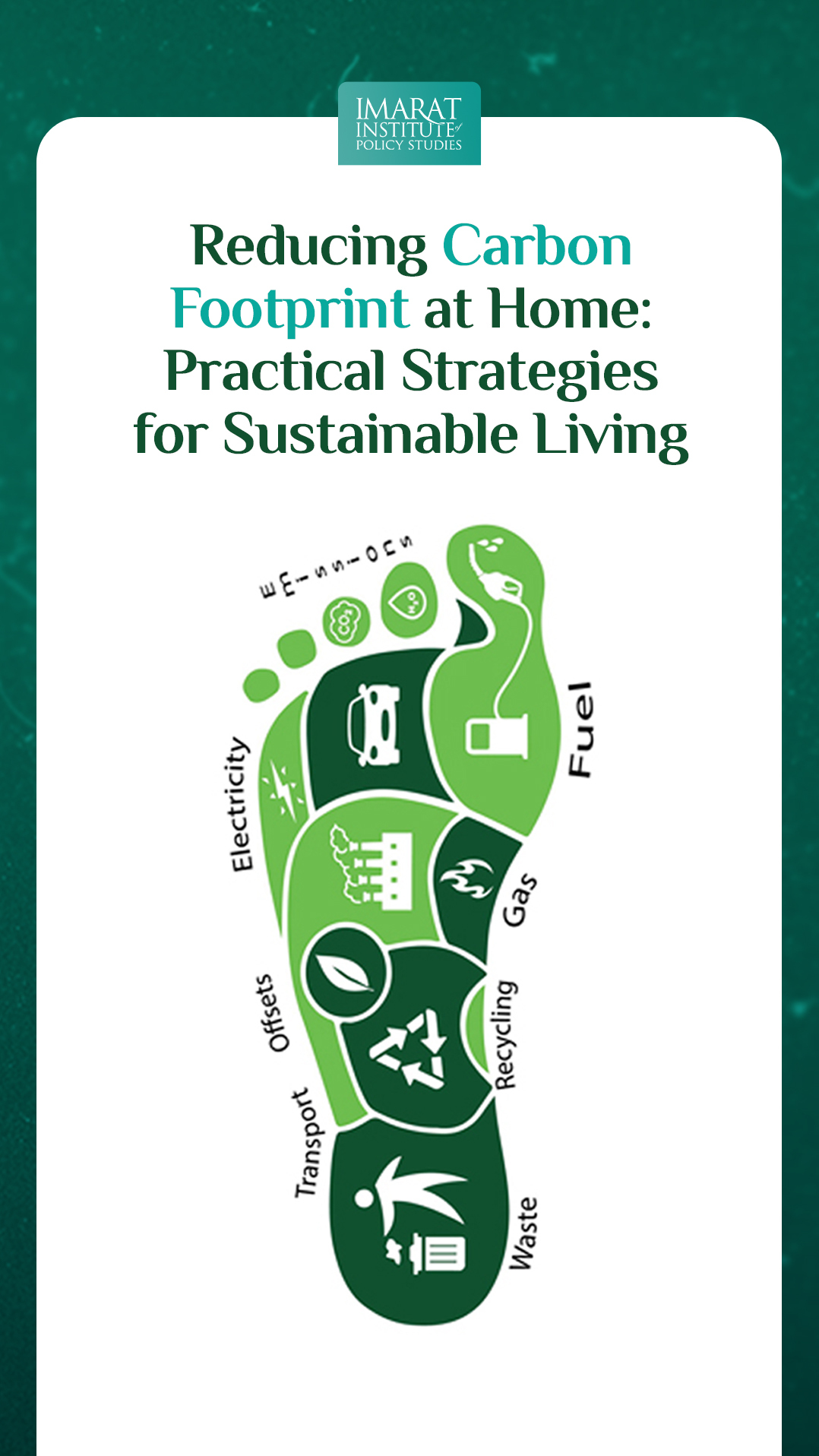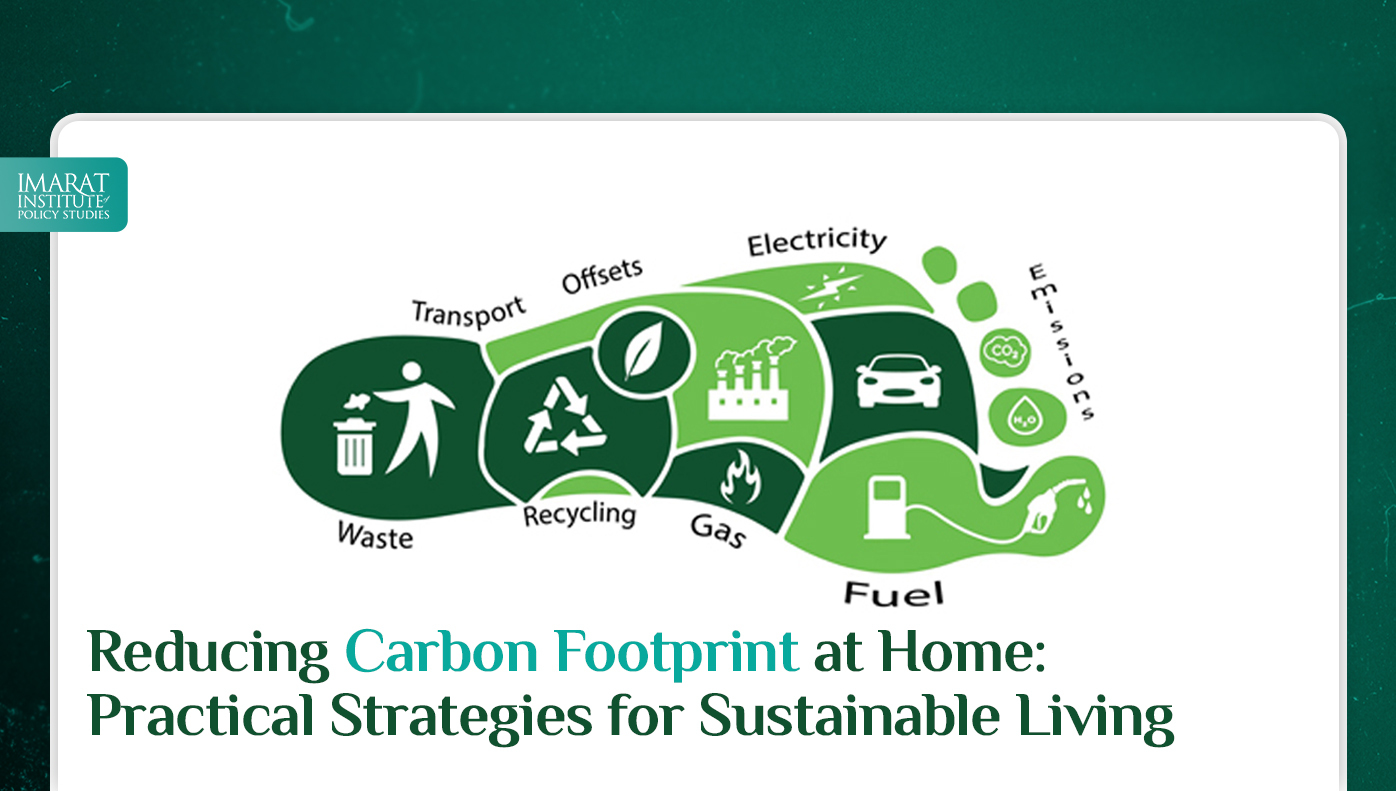Climate change poses one of the most pressing challenges humanity has ever encountered. The collective actions of humans over the past two centuries have brought us perilously close to an impending environmental crisis. The impact of our daily choices on the environment has never been clearer. One significant aspect of this impact is our carbon footprint, the total amount of greenhouse gases emitted into the atmosphere as a result of our activities. While it may seem daunting to address, reducing one’s carbon footprint at home is both achievable and crucial for mitigating climate change. Whether at home, work, school, or while traveling, small changes can add up. Individuals will want to do things like decrease the amount of energy used, eat fewer animal products, shop locally, travel smart, and reduce waste. Each action taken collectively contributes to the broader effort to mitigate climate change and preserve our planet for future generations.
What is Carbon Footprint?
A carbon footprint is the overall emissions of greenhouse gases, like carbon dioxide (CO2), produced by an individual, organization, or activity. It shows how much our actions affect the environment and contribute to climate change. Lowering our carbon footprint at home is essential to help fight climate change. In 2018, Pakistan nation ranked as the fifth most populous globally with over 230 million inhabitants, and stood as the 18th largest contributor to greenhouse gas emissions (Dune & Chandrasekhar, 2023).
What are the Strategies?
Following are some of the strategies for reducing carbon footprint at home.
Energy Efficiency
In today’s era of heightened environmental awareness, embracing energy efficiency is imperative. Switching to renewable energy sources like solar panels and participating in community solar programs offer clean alternatives to fossil fuels, reducing reliance on environmentally harmful energy sources. Additionally, upgrading to energy-efficient appliances and lighting significantly decreases energy consumption and emissions. Implementing smart energy practices such as using programmable thermostats further optimizes energy usage, empowering individuals to make meaningful strides towards sustainability and combat climate change. Moreover, the benefits of energy efficiency extend beyond environmental considerations to encompass economic advantages, including reduced utility bills and increased energy independence. By prioritizing energy efficiency initiatives, individuals and communities can not only mitigate their environmental impact but also reap tangible benefits for their finances and well-being.
Water Conservation
Water conservation is paramount in the effort to preserve our planet’s precious resources. Simple actions like fixing leaks, installing water-efficient devices such as low-flow showerheads, and adopting water-saving habits like taking shorter showers can have a significant impact. These practices not only help conserve water but also reduce the energy required for heating, contributing to overall sustainability efforts. Additionally, collecting rainwater for outdoor use presents an eco-friendly solution that further bolsters water conservation endeavors. By embracing these strategies, individuals can play a crucial role in safeguarding our water supply for future generations while simultaneously reducing their environmental footprint.
Waste Reduction and Recycling
Waste reduction and recycling are pivotal in the fight against environmental degradation. By minimizing landfill waste and curbing carbon emissions associated with waste disposal, we can make significant strides towards sustainability. Key steps include reducing single-use plastics, implementing proper recycling practices, and composting organic waste. These actions not only mitigate the strain on landfills but also foster a circular economy where materials are reused and repurposed, thereby lessening our environmental impact. Through collective efforts to embrace waste reduction and recycling, we can pave the way towards a greener, more sustainable future for generations to come.
Sustainable Transportation
Sustainable transportation is pivotal in combating climate change and reducing our carbon footprint. By opting for alternative modes of transportation such as walking, biking, or using public transit, individuals can significantly diminish reliance on fossil fuels and cut down carbon emissions from vehicles. Investing in fuel-efficient vehicles, such as hybrids or electric cars, represents another crucial step towards sustainable transportation practices. Additionally, planning efficient travel routes and carpooling whenever possible further minimizes environmental impact. Through these concerted efforts, we can foster a more sustainable transportation system and pave the way for a cleaner, greener future.
Sustainable Food Choices
Sustainable food choices play a vital role in mitigating environmental impact and fostering a healthier planet. Supporting local and organic food systems reduces carbon emissions associated with long-distance transportation and chemical-intensive farming practices. Similarly, reducing meat consumption helps lower greenhouse gas emissions attributed to livestock farming, which is a significant contributor to climate change. Additionally, minimizing food waste not only conserves resources but also reduces methane emissions from decomposing food in landfills. By prioritizing these practices, individuals can not only lower their carbon footprint but also promote healthier and more environmentally friendly diets, contributing to a more sustainable future for all.
Conclusion
Reducing your carbon footprint at home is not only beneficial for the environment but also for your well-being and future generations. By implementing the strategies outlined in this blog post, you can take meaningful steps towards sustainable living and contribute to the global effort to combat climate change. Together, let’s embrace a more eco-friendly lifestyle and make a positive impact on the planet.
References
Dune, D., & Chandrasekhar, A. (2023, May 25). The Carbon Brief Profile: Pakistan. Carbon Brief. Retrieved April 5, 2024, from https://interactive.carbonbrief.org/the-carbon-brief-profile-pakistan/
This article is written by Haneen Gul. Haneen is a research analyst at the Iqbal Institute of Policy Studies (IIPS).



Leave a Reply